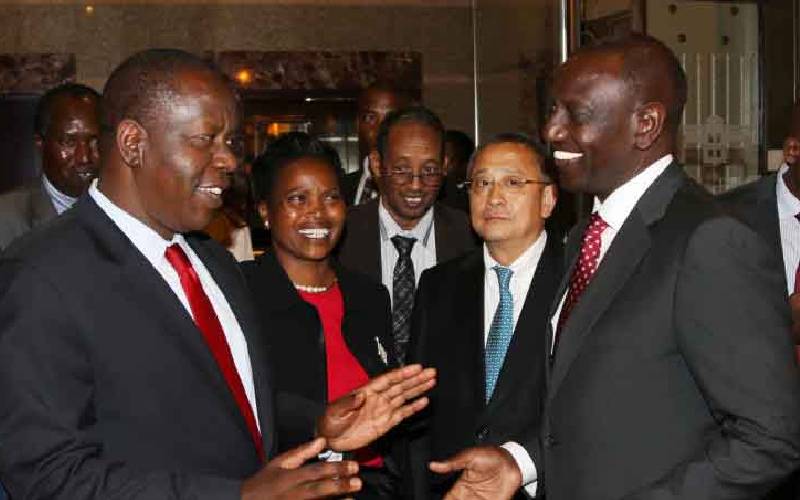×
The Standard e-Paper
Home To Bold Columnists

Deputy President William Ruto shares a light moment with CS Education Dr. Fred Matiang'i and Principal Secretary Dinah Mwinzi during the Africa Tech Challenge (ATC) Award ceremony held at Villa Rosa Kempinski, Nairobi. [ Courtesy]
Political competitions lose meaning when they sink into vendetta. About the most noble thing, perhaps the only noble thing about politics is competition of ideas. Political contests are about individuals and formations pitching for managing power and public affairs.